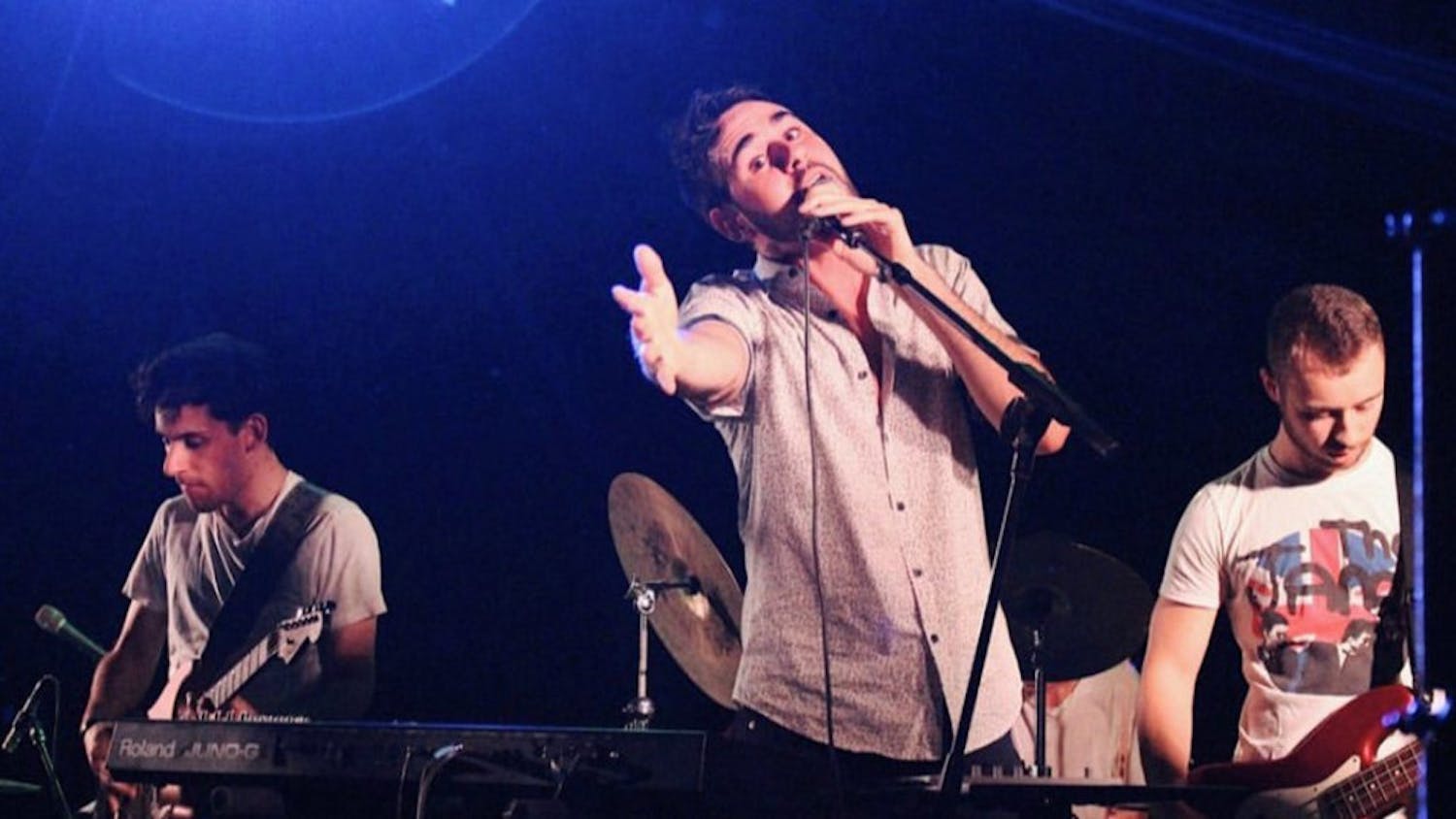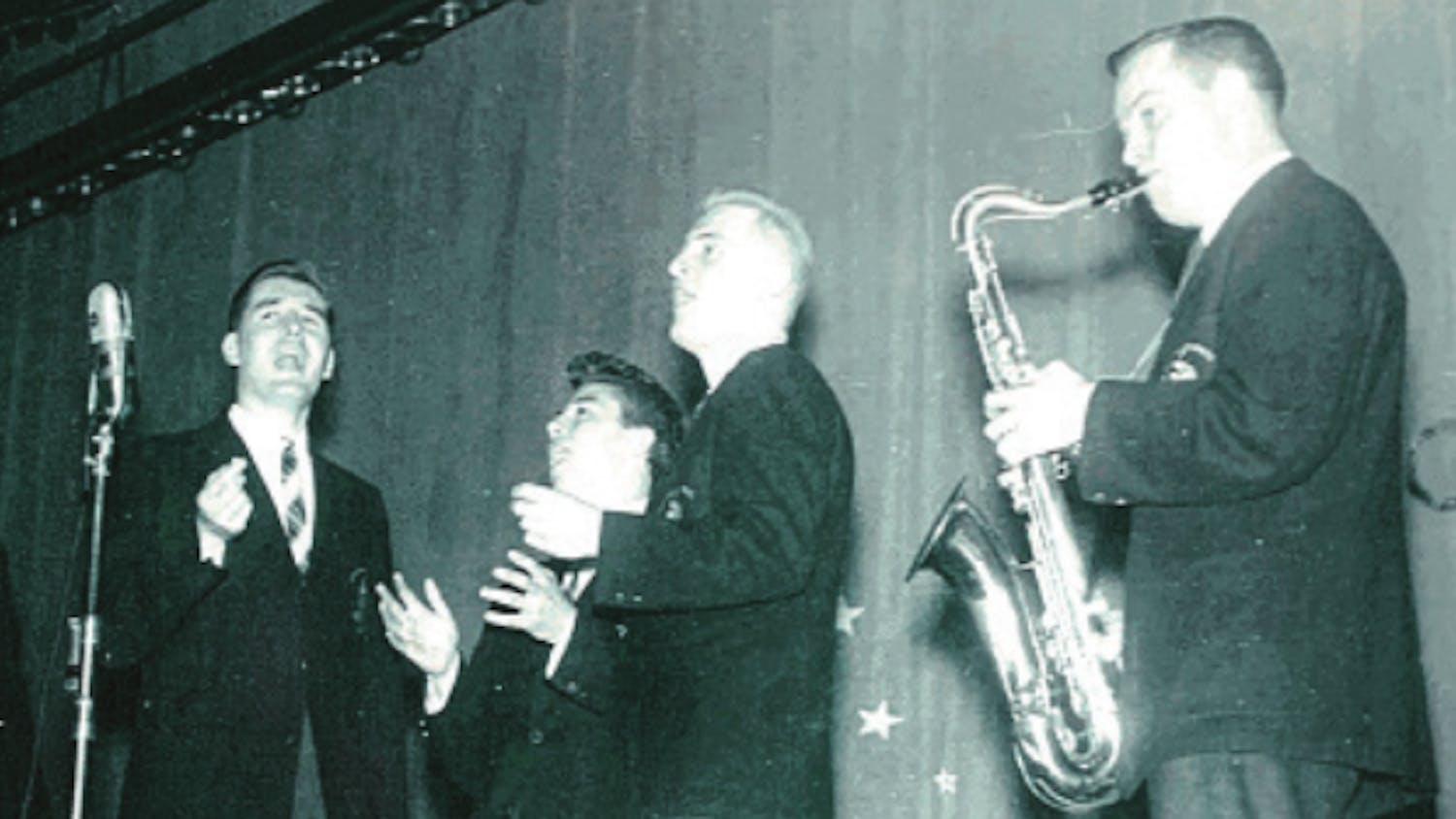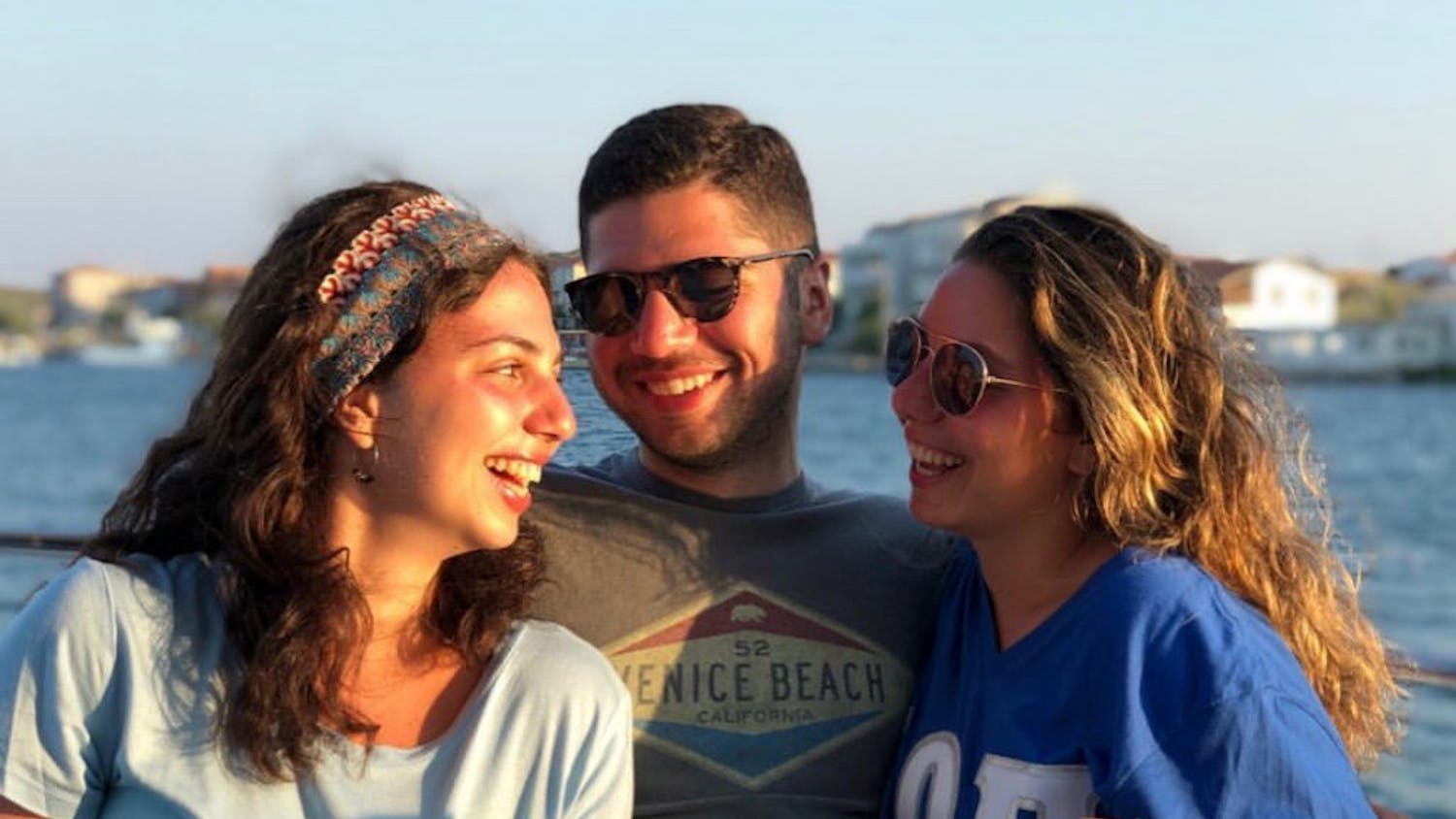[caption id="attachment_15200" align="alignright" width="332"] Clare Byrne in Uganda, helping children with disabilities. Photo courtesey of Clare Byrne.[/caption]
Clare Byrne, a Seton Hall alumna ‘12 living in Uganda, lights up with passion when she speaks about her mission to help children with disabilities.
Byrne grew up in Berkeley Heights, NJ about 25 minutes from Seton Hall. Growing up, she saw her sister, who had disabilities, work with therapists who had a positive impact on her.
She knew she wanted to have an impact on children’s lives in the same way. Becoming an occupational therapist would fulfill her goal to have a job that influences children and families to see the potential of a child. Byrne received her master’s in Occupational Therapy from Seton Hall in 2012.
This past February, Byrne founded Imprint Hope, a nonprofit organization located in Uganda that helps children with disabilities. The mission is to raise awareness about disabilities, break down barriers and tackle the stigma associated with children that struggle.
“We are educating communities and fostering hope so parents see the potential of a child with disabilities,” Byrne said.
According to its website, Imprint Hope envisions a world where all children with disabilities are appreciated for their unique talents and provided an opportunity to actualize their full potential.
Byrne said that her family and especially her sister were a huge influence. Byrne’s sister, Maura, also has a nonprofit organization called Made In His Image and travels around the country following her passion of empowering women.
In a previous interview with Victoria Bartek for Seton Hall website, Byrne recalled speaking with her advisor, Thomas Mernar, an assistant professor in the Department of Occupational Therapy, and being encouraged to pursue her dream. Mernar, in an interview with the Seton Hall website, said that from the time he met Byrne, he recognized her strong servant leadership skills,
During her last year at Seton Hall, Byrne spoke to Mernar about traveling to Africa after graduation.
“My first thought was how special and unique her intentions were, how untraditional this idea was, but I immediately supported her,” Mernar said. “I am very proud of her ambition and vision for helping and enabling children in need.”
Byrne visited Uganda for the first time in 2013 on a mission trip to an orphanage to help children with disabilities. Upon returning to the U.S. she got a job and went straight to work, but after visiting Uganda for a second time she could not resist her calling any longer.
“I felt my heart come alive in many ways and I had ignored it for so long while I was working,” she said. “I thought ‘I’m going to go to Uganda once, it’s going to be a mission and it’s going to be great.’”
Not long after she came home and Googled “how to form a nonprofit,” Imprint Hope became a reality.
She was able to connect likeminded individuals at home and in Uganda that have the heart to help children with disabilities and to serve.
She returned to Uganda this past August, and though she said it was difficult leaving her friends and family, she believes her mission is worth it.
“Anywhere in life you go, you’re going to be asked to sacrifice something to achieve the greater goal and in my mind it’s worth sacrificing to help these children,” she said.
Perhaps one of the most heart-wrenching things about her work in Uganda is the lack of understanding that she sees regarding children with disabilities.
“I was heartbroken about how children with disabilities were treated,” Byrne said.
She said this was her driving motivation to stay in Uganda."
Imprint Hope sees many different conditions on a daily basis. Among them are cerebral palsy, hydrocephalies, cerebral malaria, polio, physical disabilities, developmental delay, malnourishment and cancer.
According to a recent study by UNICEF, 2.5 million children with some form of disability live in Uganda, and only 9 percent of those children attend primary school.
For those children who are severely disabled, the hardships are greater. Byrne noticed that in the villages of Uganda, a lot of the people farm during the day but she said that most children with physical disabilities lie in a mud hut all day and do nothing. These children have no interaction and are not integrated into society. There is no free public education in Uganda and very few teachers are trained in special education, so even if a child with a disability is able to go to school, they most likely will not be taught in a way that they can learn.
Byrne said that every day is a new learning experience but seeing the work of Imprint Hope make a difference makes it all worth it.
“When you see a child smile for the first time, gain some sense of awareness or take their first steps walking, you just feel such joy in your heart, it is something that money can’t buy, their smile fills my heart with so much joy and peace,” she said.
Byrne is currently learning Luganda, the major language in Uganda, to better connect with children and families. She travels with a Ugandan native to speak with patients.
Byrne recalled working with a young girl with physical disabilities. She was abandoned by her parents and found on the side of the road.
After working with her for two weeks, getting her leg braces, working on her posture control and her ability to stand, they returned the young girl to her village and to her grandmother. They explained the girl’s potential to the people of the village and her grandmother. Upon sitting her on a chair, the grandmother, amazed, said in Luganda,“I never knew my granddaughter could sit in a chair.”
Her whole life, the girl was placed on the ground. This is what Byrne believes the mission of Imprint Hope is all about, breaking down barriers by showing people a child’s true potential.
The long term goal of Imprint Hope is to build a rehabilitation center with a medical clinic as well as a school for children with disabilities with teachers trained to teach children with various neurological or cognitive impairments.
“When you have dreams and you actually see them unfold you just have to pinch yourself sometimes,” Byrne said.
The progress that has been made continues to inspire and gives her the strength to continue her work.
Macarena Solis can be reached at macarena.solis@student.shu.edu
Clare Byrne in Uganda, helping children with disabilities. Photo courtesey of Clare Byrne.[/caption]
Clare Byrne, a Seton Hall alumna ‘12 living in Uganda, lights up with passion when she speaks about her mission to help children with disabilities.
Byrne grew up in Berkeley Heights, NJ about 25 minutes from Seton Hall. Growing up, she saw her sister, who had disabilities, work with therapists who had a positive impact on her.
She knew she wanted to have an impact on children’s lives in the same way. Becoming an occupational therapist would fulfill her goal to have a job that influences children and families to see the potential of a child. Byrne received her master’s in Occupational Therapy from Seton Hall in 2012.
This past February, Byrne founded Imprint Hope, a nonprofit organization located in Uganda that helps children with disabilities. The mission is to raise awareness about disabilities, break down barriers and tackle the stigma associated with children that struggle.
“We are educating communities and fostering hope so parents see the potential of a child with disabilities,” Byrne said.
According to its website, Imprint Hope envisions a world where all children with disabilities are appreciated for their unique talents and provided an opportunity to actualize their full potential.
Byrne said that her family and especially her sister were a huge influence. Byrne’s sister, Maura, also has a nonprofit organization called Made In His Image and travels around the country following her passion of empowering women.
In a previous interview with Victoria Bartek for Seton Hall website, Byrne recalled speaking with her advisor, Thomas Mernar, an assistant professor in the Department of Occupational Therapy, and being encouraged to pursue her dream. Mernar, in an interview with the Seton Hall website, said that from the time he met Byrne, he recognized her strong servant leadership skills,
During her last year at Seton Hall, Byrne spoke to Mernar about traveling to Africa after graduation.
“My first thought was how special and unique her intentions were, how untraditional this idea was, but I immediately supported her,” Mernar said. “I am very proud of her ambition and vision for helping and enabling children in need.”
Byrne visited Uganda for the first time in 2013 on a mission trip to an orphanage to help children with disabilities. Upon returning to the U.S. she got a job and went straight to work, but after visiting Uganda for a second time she could not resist her calling any longer.
“I felt my heart come alive in many ways and I had ignored it for so long while I was working,” she said. “I thought ‘I’m going to go to Uganda once, it’s going to be a mission and it’s going to be great.’”
Not long after she came home and Googled “how to form a nonprofit,” Imprint Hope became a reality.
She was able to connect likeminded individuals at home and in Uganda that have the heart to help children with disabilities and to serve.
She returned to Uganda this past August, and though she said it was difficult leaving her friends and family, she believes her mission is worth it.
“Anywhere in life you go, you’re going to be asked to sacrifice something to achieve the greater goal and in my mind it’s worth sacrificing to help these children,” she said.
Perhaps one of the most heart-wrenching things about her work in Uganda is the lack of understanding that she sees regarding children with disabilities.
“I was heartbroken about how children with disabilities were treated,” Byrne said.
She said this was her driving motivation to stay in Uganda."
Imprint Hope sees many different conditions on a daily basis. Among them are cerebral palsy, hydrocephalies, cerebral malaria, polio, physical disabilities, developmental delay, malnourishment and cancer.
According to a recent study by UNICEF, 2.5 million children with some form of disability live in Uganda, and only 9 percent of those children attend primary school.
For those children who are severely disabled, the hardships are greater. Byrne noticed that in the villages of Uganda, a lot of the people farm during the day but she said that most children with physical disabilities lie in a mud hut all day and do nothing. These children have no interaction and are not integrated into society. There is no free public education in Uganda and very few teachers are trained in special education, so even if a child with a disability is able to go to school, they most likely will not be taught in a way that they can learn.
Byrne said that every day is a new learning experience but seeing the work of Imprint Hope make a difference makes it all worth it.
“When you see a child smile for the first time, gain some sense of awareness or take their first steps walking, you just feel such joy in your heart, it is something that money can’t buy, their smile fills my heart with so much joy and peace,” she said.
Byrne is currently learning Luganda, the major language in Uganda, to better connect with children and families. She travels with a Ugandan native to speak with patients.
Byrne recalled working with a young girl with physical disabilities. She was abandoned by her parents and found on the side of the road.
After working with her for two weeks, getting her leg braces, working on her posture control and her ability to stand, they returned the young girl to her village and to her grandmother. They explained the girl’s potential to the people of the village and her grandmother. Upon sitting her on a chair, the grandmother, amazed, said in Luganda,“I never knew my granddaughter could sit in a chair.”
Her whole life, the girl was placed on the ground. This is what Byrne believes the mission of Imprint Hope is all about, breaking down barriers by showing people a child’s true potential.
The long term goal of Imprint Hope is to build a rehabilitation center with a medical clinic as well as a school for children with disabilities with teachers trained to teach children with various neurological or cognitive impairments.
“When you have dreams and you actually see them unfold you just have to pinch yourself sometimes,” Byrne said.
The progress that has been made continues to inspire and gives her the strength to continue her work.
Macarena Solis can be reached at macarena.solis@student.shu.edu





